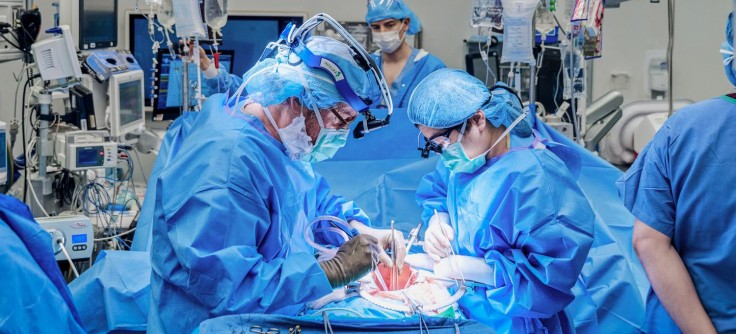The second pig kidney transplant patient is back on dialysis treatment after doctors removed the failing organ just over a month after the surgery.
NYU Langone Health announced last week that Lisa Pisano, the second person to receive a gene-edited pig kidney transplant, is back on dialysis after the replacement organ lost function 47 days after the surgery.

Transplant leader Dr. Robert Montgomery told the Associated Press that their team encountered "unique challenges" in keeping the pig kidney healthy while managing her heart pump.
Pisano is currently stable and recovering in the hospital.
Pisano's surgery came shortly after the first pig kidney transplant patient, Richard "Rick" Slayman at Massachusetts General Hospital, died earlier in May nearly two months after his transplant surgery.
Doctors claimed that the pig kidney transplant was not the direct cause of Slayman's death.
Medical Fields Turn to Gene-Edited Animal Organs Amid Scarcity in Human Donors
The rise of gene-edited organ transplant studies follows growing concerns in the medical field as the search for eligible human donors becomes much harder.
In the US alone, over 100,000 patients are still waiting on an organ transplant as hospitals look for willing donors with the same metabolic system as the patients.
While artificial organs exist, most are not suitable to prolong the patient's life and have a higher chance of failure compared to natural organs.
To meet growing demands for organ donors, medical professionals have begun experimenting on animal-to-human transplants with species close to a human's genetic makeup.
Previous tests on transferring gene-altered pig brains to a dead body have provided promising results, prompting medical officials to bring the tests to willing patients.
However, most attempts on live patients have ended with failure, including two pig heart transplant patients in Maryland dying months after the emergency surgery.
What is Next for Animal-to-Human Organ Transplant?
Despite setbacks, both NYU Langone and the Massachusetts General Hospital intend to continue efforts in bringing compatible gene-edited animal organs to human patients.
Montgomery said that the hospital would "continue pursuing the hope and promise of xenotransplantation" as more suitable willing patients come forward soon.









